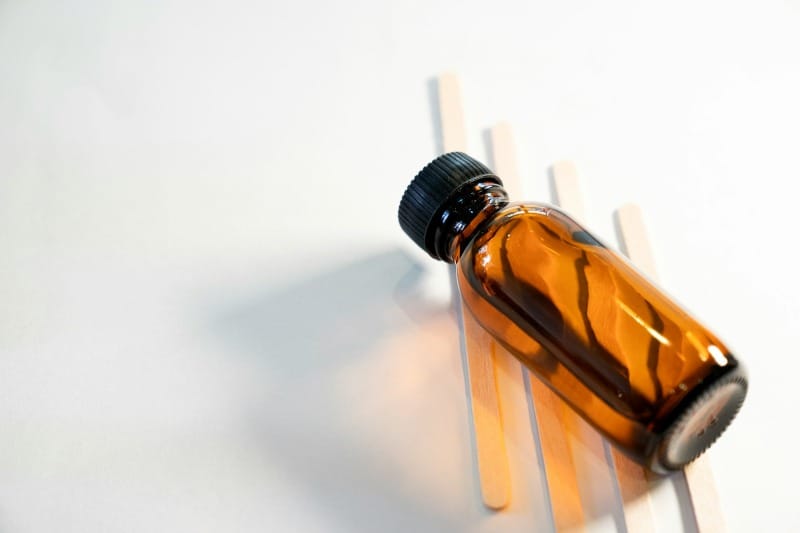Homeopathy, a form of alternative medicine developed in the late 18th century, has gained popularity as a gentle approach to self-care. While its efficacy remains a topic of debate in the scientific community, many individuals find comfort in homeopathic remedies for minor ailments. This guide explores some commonly used homeopathic treatments and their purported benefits.
Key takeaways:
• Homeopathy is based on the principle of "like cures like"
• Remedies are highly diluted substances believed to stimulate the body's healing response
• Common homeopathic treatments address issues like allergies, stress, and minor injuries
• Scientific evidence for homeopathy's effectiveness is limited
• Always consult a healthcare professional for serious health concerns

Native Remedies Acid Free-Flux
Natural Homeopathic Remedy Temporarily Relieves Heartburn, Indigestion and Discomfort After Eating
Understanding homeopathy
Homeopathy operates on the principle that substances causing symptoms in healthy people can, in minute doses, treat similar symptoms in sick individuals. Remedies are prepared through a process of repeated dilution and succussion (shaking), resulting in extremely low concentrations of the original substance.
Popular homeopathic remedies
Arnica montana
Derived from the mountain daisy, Arnica is one of the most widely used homeopathic remedies. It's commonly applied for:
• Bruises and minor injuries
• Muscle soreness and stiffness
• Post-surgical recovery
Some studies suggest Arnica may help reduce bruising and swelling, though results are mixed.

Native Remedies Triple Complex BronchoSoothe
Natural Homeopathic Formula Temporarily Relives Symptoms of Chest Constriction or Abnormal Breathing - Supports Normal Lung Functioning
Apis mellifica
Prepared from honeybee venom, Apis mellifica is often used for:
• Insect bites and stings
• Swelling and edema
• Allergic reactions
While anecdotal evidence supports its use, scientific studies on its effectiveness are limited.
Nux vomica
Made from the seeds of the strychnine tree, Nux vomica is frequently recommended for:
• Digestive issues and nausea
• Hangover symptoms
• Stress and irritability
Some users report relief from these symptoms, but robust clinical evidence is lacking.
Homeopathy for emotional well-being
Several homeopathic remedies are believed to address emotional and mental health concerns:
• Ignatia amara: Used for grief, anxiety, and mood swings
• Gelsemium: Believed to help with anticipatory anxiety and stage fright
• Pulsatilla: Often recommended for emotional sensitivity and mood changes
While many find these remedies helpful, it's crucial to seek professional help for persistent mental health issues.

GUNA Digestion Plus Homeopathic
Digestive Remedy Helps Digestion Relieves Heartburn and Sour Stomach
Choosing and using homeopathic remedies
When selecting homeopathic treatments:
- Consult a trained homeopath or healthcare provider familiar with homeopathy
- Choose remedies from reputable manufacturers
- Follow dosage instructions carefully
- Be aware that homeopathic products are not subject to the same regulatory standards as conventional medicines
The debate surrounding homeopathy
It's important to note that the scientific community largely views homeopathy as implausible due to the extreme dilutions used in remedies. Most clinical trials have failed to demonstrate effects beyond placebo. However, some individuals report positive experiences with homeopathic treatments.
Conclusion
While homeopathy remains controversial in medical circles, many people incorporate these remedies into their self-care routines. If you're considering homeopathy, approach it with an open but critical mind. Remember that homeopathic treatments should not replace conventional medical care for serious health conditions.
As with any health-related decision, it's essential to stay informed and consult with healthcare professionals. They can help you navigate the complex landscape of alternative and conventional treatments to find the best approach for your individual needs.
References:
- Lüdtke R, Hacke D. On the effectiveness of the homeopathic remedy Arnica montana. Wien Med Wochenschr. 2005;155(21-22):482-490.
- Shang A, et al. Are the clinical effects of homoeopathy placebo effects? Comparative study of placebo-controlled trials of homoeopathy and allopathy. Lancet. 2005;366(9487):726-732.
















Member discussion